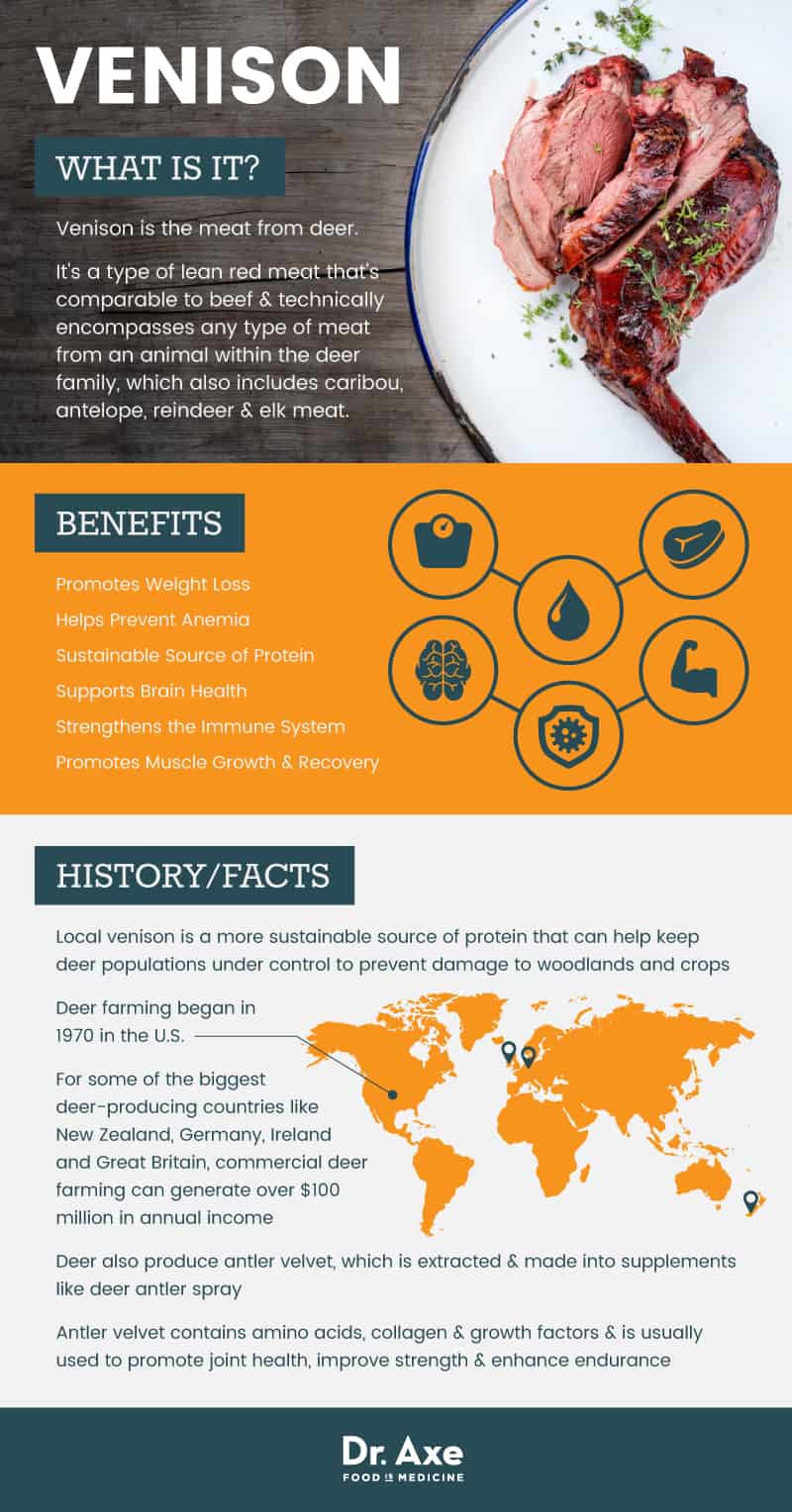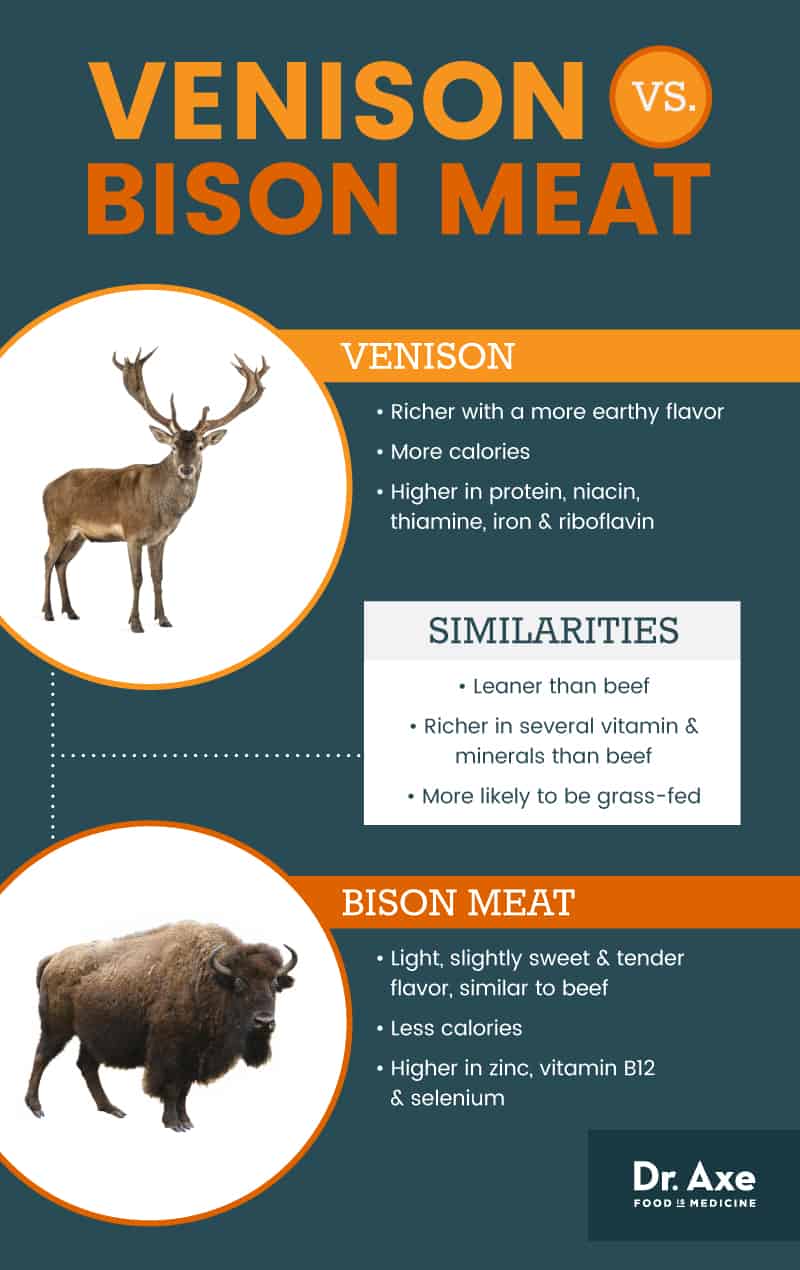This Dr. Axe content is medically reviewed or fact checked to ensure factually accurate information.
With strict editorial sourcing guidelines, we only link to academic research institutions, reputable media sites and, when research is available, medically peer-reviewed studies. Note that the numbers in parentheses (1, 2, etc.) are clickable links to these studies.
The information in our articles is NOT intended to replace a one-on-one relationship with a qualified health care professional and is not intended as medical advice.
This article is based on scientific evidence, written by experts and fact checked by our trained editorial staff. Note that the numbers in parentheses (1, 2, etc.) are clickable links to medically peer-reviewed studies.
Our team includes licensed nutritionists and dietitians, certified health education specialists, as well as certified strength and conditioning specialists, personal trainers and corrective exercise specialists. Our team aims to be not only thorough with its research, but also objective and unbiased.
The information in our articles is NOT intended to replace a one-on-one relationship with a qualified health care professional and is not intended as medical advice.
Is It Safe to Eat Deer Meat? Top 6 Venison Benefits
March 8, 2018

Venison is one of the more underappreciated types of game meat on the market. Unless you’ve grown up around hunting or have ventured out of your comfort zone when ordering at a fancy restaurant, there’s a good chance you may not have even tried deer meat before.
That being said, there are plenty of reasons you may want to consider adding venison into your weekly dinner rotation or at least give it a try if you haven’t already.
Not only does deer meat taste good, but it’s also jam-packed with nutrients, leaner than regular beef and loaded with health benefits. Deer meat is also a sustainable protein food that can aid in weight loss and help keep your brain, muscles and immune system healthy.
What Is Venison?
Venison is the meat from deer. It’s a type of lean red meat that’s comparable to beef and is often used in stews, chilis and meatloafs. But is elk venison? The venison definition technically encompasses any type of meat from an animal within the deer family, which includes caribou, antelope, reindeer and elk meat as well.
In addition to being lower in fat and calories than beef, venison also boasts an extensive list of nutrients, providing a good amount of the niacin, zinc and vitamin B12 that you need for the entire day. Plus, local venison is also considered a more sustainable source of protein that can help keep deer populations under control to prevent damage to woodlands and crops.
Best of all, it’s easy to use, full of flavor and can be a great way to bump up the nutritional value of just about any meal.
Benefits of Grass-Fed Venison
- Promotes Weight Loss
- Helps Prevent Anemia
- Strengthens the Immune System
- Promotes Muscle Growth and Recovery
- Sustainable Source of Protein
- Supports Brain Health
1. Promotes Weight Loss
Deer meat is loaded with protein and relatively low in calories, making it a great dietary addition if you’re looking to shed a few extra pounds. Eating protein can help decrease levels of ghrelin, the hormone that is responsible for stimulating hunger. (1) Some studies also show that a high-protein diet can boost metabolism and reduce appetite and intake as well. (2, 3)
2. Helps Prevent Anemia
Anemia is a condition that occurs when your body doesn’t have enough healthy red blood cells. Anemia symptoms can range from fatigue and dizziness to pale skin or a fast heartbeat.
Although there are many potential factors that can contribute to anemia, deficiencies in important vitamins and minerals are especially common causes. Low levels of vitamin B12 and an iron deficiency, in particular, can impair red blood cell production and lead to anemia.
Venison is an excellent source of both of these nutrients, providing 33 percent of your vitamin B12 needs and 16 percent of your daily iron requirement in each three-ounce serving. Adding a few servings of deer meat into a healthy diet each week can help you meet your micronutrient needs to prevent anemia.
3. Strengthens the Immune System
Deer meat is rich in zinc, with just one three-ounce serving knocking out 29 percent of your daily zinc requirement. Zinc is an essential mineral that plays a central role in many aspects of health, especially when it comes to your immune system.
Zinc is crucial for the normal development and growth of immune cells and also helps prevent oxidative stress caused by inflammation. (4) It may also offer protection against certain conditions as well. According to a study published in the Annals of Nutrition & Metabolism, an adequate intake of zinc can reduce symptoms and shorten the duration of respiratory infections like the common cold. It may also be beneficial in the treatment of conditions like malaria, pneumonia and diarrhea. (5)

4. Promotes Muscle Growth and Recovery
Venison is high in protein, which is required for building and repairing tissues in the body. Getting enough protein in your diet is also key if you’re looking to gain muscle mass, as protein is considered a building block for bones, skin, cartilage and muscles.
Besides being high in protein, deer meat also contains a specific amino acid called L-glutamine, which has been shown to aid in muscle recovery. In one study out of the School of Health and Human Performance, Division of Kinesiology at Dalhousie University in Canada, supplementation with L-glutamine was shown to speed up recovery and decrease muscle soreness after exercise in 16 participants. (6)
5. Sustainable Source of Protein
Deer meat is one of the best protein foods that you can incorporate into your diet. In fact, with nearly 23 grams of protein in each three-ounce serving, the protein content in venison vs. beef is almost identical, making it a great addition to a high-protein, healing diet.
Protein makes up the foundation of your hair, skin and nails and is also needed for the synthesis of certain enzymes and hormones. Protein deficiency can come with some serious consequences, from slowing down your metabolism to tanking your energy levels and mood.
Not only is deer meat high in protein, but local venison is also considered a more sustainable source of protein. Deer overpopulation is a serious problem and can result in damage to crops and landscapes. Hunting deer is a way to keep the deer populations under control and minimize the potential environmental impact.
6. Supports Brain Health
It’s clear that what you eat can have a big influence on the health of your brain. Venison can help supply certain vitamins and minerals that have been shown to improve cognitive function, enhance memory and fine-tune focus, placing it among the best brain foods around.
Vitamin B12, for example, has been shown to improve learning and memory function. (7) Studies also show that niacin can help protect against cognitive decline and the development of neurodegenerative conditions like Alzheimer’s disease. (8) Deer meat also contains a good chunk of vitamin B6, which can help boost mood and improve mental health. (9)
Venison Nutrition
So is deer meat healthy? Definitely! Not only is venison a great source of protein, but it also provides a range of other important micronutrients like niacin, vitamin B12 and zinc as well.
A three-ounce serving (about 85 grams) of cooked ground venison contains approximately: (10)
- 159 calories
- 22.5 grams protein
- 7 grams fat
- 7.9 milligrams niacin (39 percent DV)
- 2 micrograms vitamin B12 (33 percent DV)
- 4.4 milligrams zinc (29 percent DV)
- 0.4 milligram thiamine (29 percent DV)
- 0.4 milligram vitamin B6 (20 percent DV)
- 194 milligrams phosphorus (19 percent DV)
- 0.3 milligram riboflavin (16 percent DV)
- 2.8 milligrams iron (16 percent DV)
- 8.8 micrograms selenium (13 percent DV)
- 309 milligrams potassium (9 percent DV)
- 0.6 milligram pantothenic acid (6 percent DV)
- 20.4 milligrams magnesium (5 percent DV)
In addition to the nutrients listed above, venison also contains some vitamin E, copper and folate as well.
Venison vs. Bison Meat
Much like venison, bison meat is popular for both its nutrition profile and health benefits. Bison is also touted as a healthier alternative to beef because it’s leaner, richer in several vitamins and minerals, and more likely to be grass-fed. There are plenty of differences that set bison and venison apart, though.
Bison has a light, slightly sweet and tender flavor. It tastes very similar to grass-fed beef and works well in just about any recipe where beef is used, such as burgers, stews and soups. The venison taste, on the other hand, is a bit richer with a more earthy flavor. Like bison, it can also be used in stews and chilis, but is very lean and needs to mixed with other kinds of meat for certain dishes like burgers.
Nutritionally, there are also a few distinctions between the two. In a single three-ounce serving, bison contains slightly less calories and protein and is also a bit lower in micronutrients like niacin, thiamine, iron and riboflavin. Bison does, however, contain slightly more zinc, vitamin B12 and selenium than venison.
That being said, the nutritional differences between bison and venison are minimal. Enjoy both as part of a healthy diet to take advantage of the unique health benefits that each has to offer.

Where to Find and How to Use Deer Meat
Wondering where to buy venison? While you may have trouble finding venison for sale at your local grocery store, it’s become more widely available in recent years. In fact, many specialty stores or butcher shops have deer meat for sale and can also often special order it for you if not. If you’re having difficulty, venison is also available through some online retailers who can ship it frozen directly to you.
The deer meat taste is often described as rich and earthy with a firmer texture than other types of meat like beef. Although some people steer clear of venison because they say it tastes gamey and tough, it all comes to down to proper preparation.
Because it’s a very lean meat, deer meat tastes best when cooked low and slow. Braising or stewing it are two popular cooking methods that can really bring out its unique flavor. Soaking the meat in water, vinegar or buttermilk before cooking can help remove the blood and reduce the gamey flavor.
You can easily incorporate deer meat into many of your favorite dishes. Venison jerky, chili, stew and venison roast are just a few options for using this nutritious meat.
Venison Recipes
With its rich and distinct flavor, deer meat can be easily added to many different recipes, from soups to sandwiches and beyond. Looking for ideas? Here are a few ground venison recipes that you can try out:
- Venison Shepherd’s Pie
- Crockpot Venison Stew
- Spicy Asian Venison Bowl
- Spicy Three Bean Venison Chili
- Venison Meatloaf
History
Throughout history, deer have played a big part of the art, mythology and culture of several ancient civilizations, including the ancient Greeks, Egyptians and Celts. Deer have also been an important source of food for humans for centuries. In China, the sika deer was a staple for early humans while reindeer was often consumed during the Late Stone Age.
Deer farming in the United States began around 1970 as people started seeking other ways to use their land and resources. Although venison is produced in smaller quantities than other types of meat like beef and chicken, it still has a major economic impact around the globe. For some of the biggest deer-producing countries like New Zealand, Germany, Ireland and Great Britain, commercial deer farming can generate over $100 million in annual income. (11)
In addition to meat, deer also produce antler velvet, a type of immature tissue that forms on the bone and cartilage of the antlers, that is extracted and made into supplements like deer antler spray. Although evidence has been mixed on its potential benefits and effectiveness, antler velvet contains amino acids, collagen and growth factors and is usually used to promote joint health, improve strength and enhance endurance.
Precautions
Although venison is generally considered a safe and healthy alternative to many other types of meat, there are some dangers of eating deer meat that need to be considered.
First of all, despite its multitude of health benefits, venison is still considered a type of red meat. Consuming excess amounts of red meat has been associated with a higher risk of several conditions, including heart disease and cancer. (12) While it’s OK to enjoy from time to time, keep your intake of red meat in moderation and be sure to balance it with a nutritious diet.
There is also concern about certain diseases that commonly infect deer being transmitted to humans. Chronic wasting disease, for example, is a fatal disease caused by an abnormal form of a protein that infects the host and causes behavioral and neurological changes.
While there is no evidence of this disease infecting humans, it’s recommended to avoid eating certain parts of the deer, such as the brains, eyes, spinal cords, tonsils, spleen or lymph nodes, to help minimize the risk. Additionally, if you’re hunting deer, avoid killing any deer that appear sick.
Finally, be sure to practice safe cooking and handling techniques to kill off bacteria and prevent the spread of infection. Always store your deer meat in the refrigerator or freezer and cook to an internal temperature of at least 160 degrees Fahrenheit. If you do experience any negative side effects after eating deer meat, talk to your doctor.
Final Thoughts
- Venison is the meat from deer, including animals in the deer family such as elk, reindeer, caribou and antelope.
- It’s lower in calories and fat than beef and has a similar but richer, more earthy flavor.
- Deer meat is high in many important nutrients, including vitamin B12, zinc and niacin.
- It’s considered a sustainable source of protein and can help promote weight loss, boost brain health, enhance immunity, encourage muscle growth and recovery, and prevent anemia.
- Venison can easily be added into some of your favorite recipes and makes a nutritious addition to a well-rounded diet.

